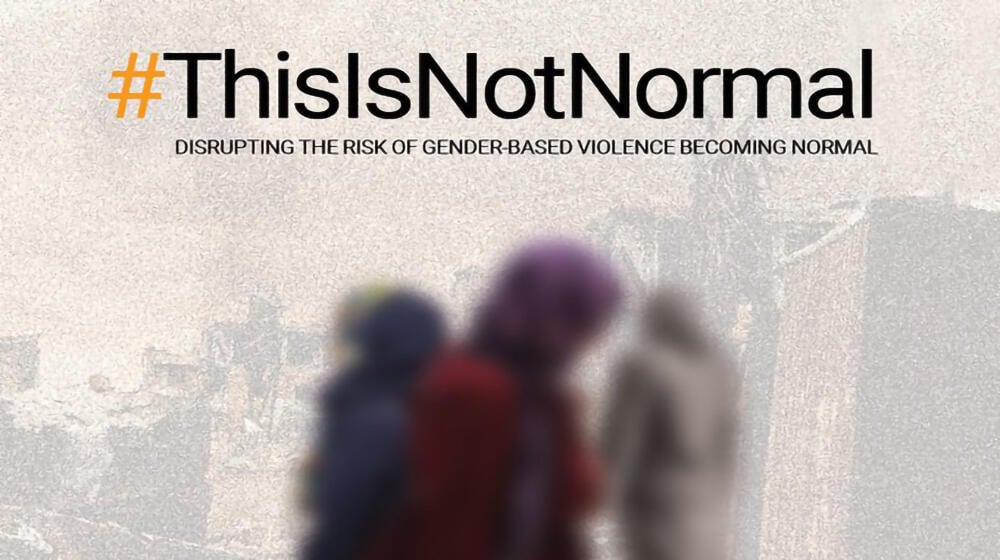Cairo, June 19, 2022 — On International Day for the Elimination of Sexual Violence in Conflict, UNFPA, the United Nations sexual and reproductive health agency, Arab States Regional Office (ASRO), has launched the #ThisisNotNormal campaign to push back against the risks of the normalization of gender-based violence, including sexual violence and harmful practices, in humanitarian settings.
The #ThisIsNotNormal campaign comes in response to increasing reports by women and girls that violence against them is becoming so widespread and unchecked, that it is normalized in some communities. Featuring the voices of artists and influencers, across Arab region, such as Ghada Saba, Joanna Arida, Maya Ammar, and Ala Hamdan, the campaign aims to counter this alarming trend, amplify the voices of women and girls survivors of gender-based violence, and reaffirm global commitment to ending gender-based violence, including sexual violence in conflict, and providing justice and support services to all those affected.
“Protracted crises throughout the region have taken a massive toll on every single person, but in particular women and girls who face increased risks of life-threatening violence, including sexual violence, and lack access to essential services,” said UNFPA Arab states Regional Director, Dr. Luay Shabaneh. “In some communities, women and girls tell us that violence against them is becoming normalized, threatening their health, lives and dignity .”
The campaign is part of UNFPA’s continued efforts to engage communities, partners, governments, and other stakeholders to implement programmes and initiatives to prevent and respond to gender-based violence. Globally, UNFPA continues to prioritize the availability of and access to services, including sexual and reproductive health and specialized medical and psychosocial support services for women and girls in need.
The term “normalization” refers to a growing sense of collective acceptance of violence against women and girls as a social phenomenon. Contributing factors include existing gender inequalities and the extended erosion of protection mechanisms, as well as the absence of legal accountability.
“The international community must demonstrate a united front in its rejection of the normalization of violence against women and girls, and ensure that their rights, including the right to live free from violence, are prioritized in humanitarian responses,” added Shabaneh.
END
About UNFPA
UNFPA is the United Nations sexual and reproductive health agency. UNFPA's mission is to deliver a world where every pregnancy is wanted, every childbirth is safe and every young person's potential is fulfilled. UNFPA calls for the realization of reproductive rights for all and supports access to a wide range of sexual and reproductive health services, including voluntary family planning, quality maternal health care and comprehensive sexuality education.
For more information, please contact:
In Cairo: Samir Aldarabi, Regional Media Adviser for the United Nations Population Fund for the Arab States Region, +201068484879, aldarabi@unfpa.org
In Amman: Jafar Irshaidat, Communications Specialist, United Nations Population Fund / Regional Humanitarian Hub for Syria and the Arab States, +962797300157, irshaidat@unfpa.org


